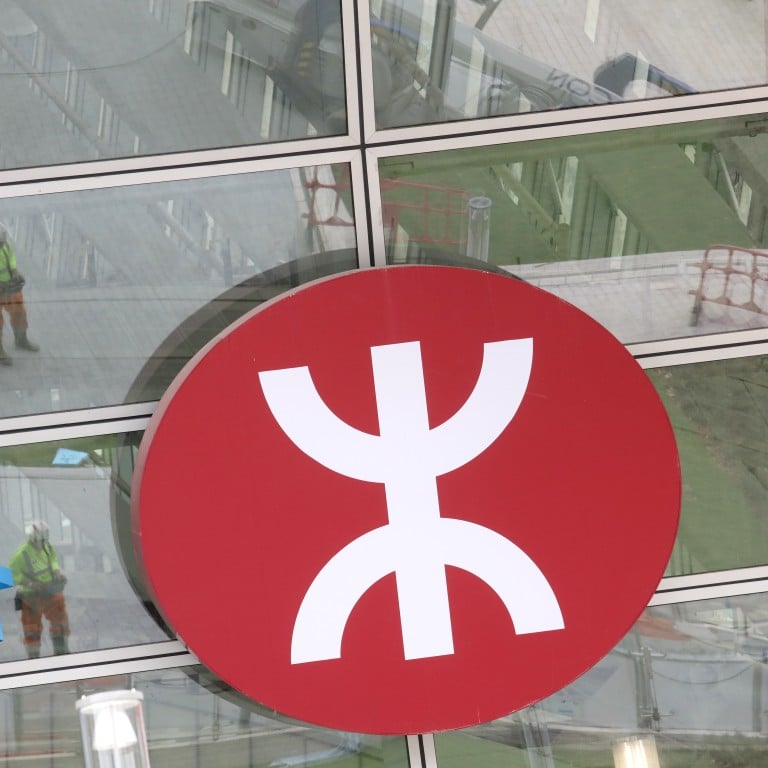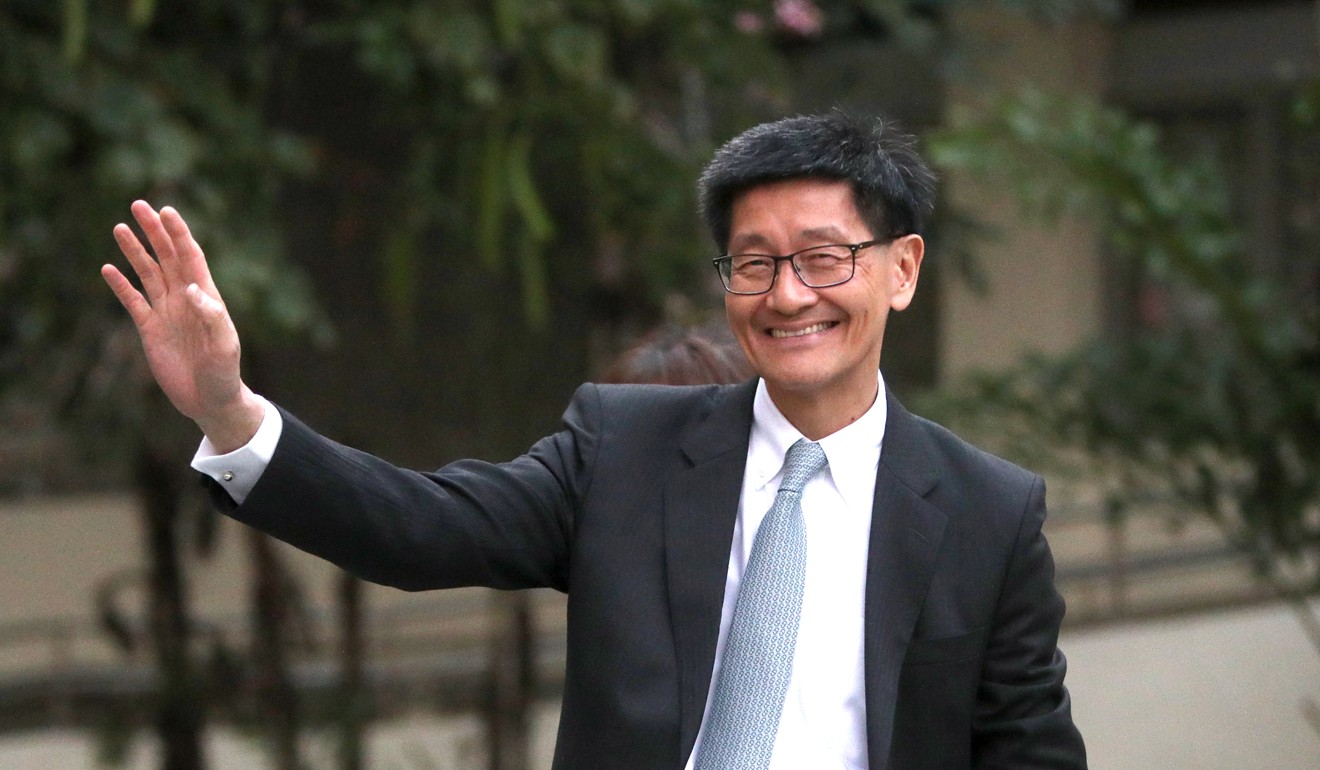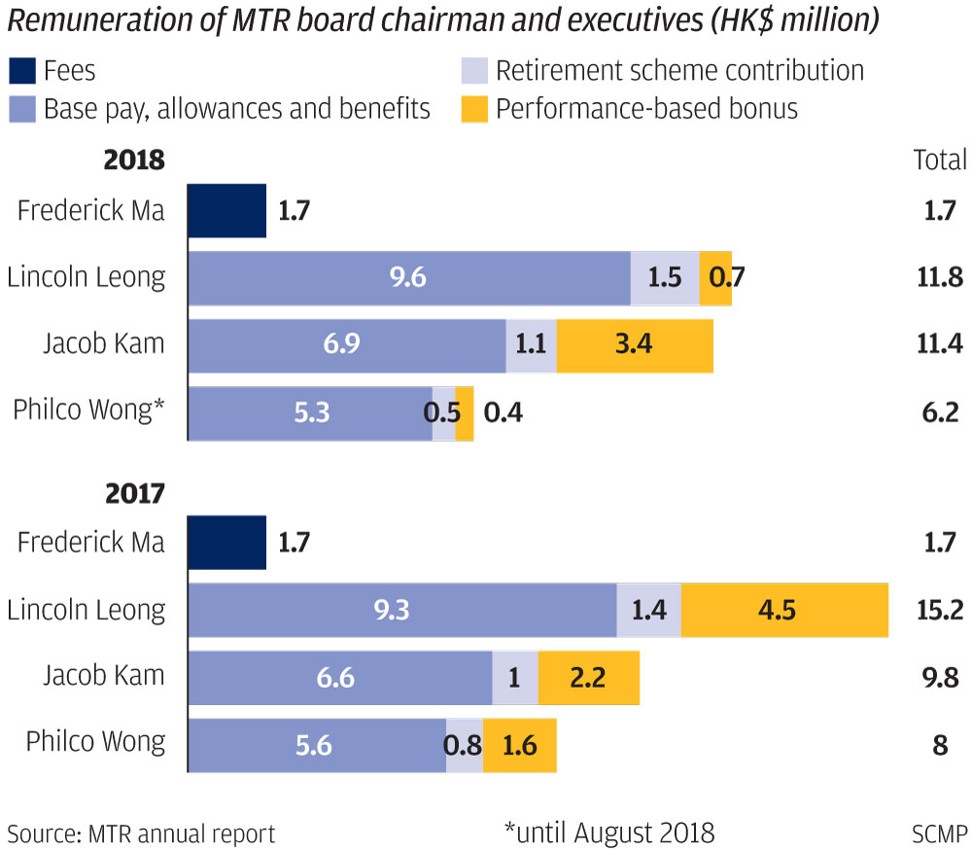
Former MTR Corp boss has bonus slashed but still gets HK$11.8 million, despite year of scandal at troubled Hong Kong rail operator
- Former CEO takes 22 per cent hit after city’s leader says there must be no golden handshakes
- Annual report reveals four top official were paid a total of HK$31.1 million in 2018
Former MTR Corporation CEO Lincoln Leong Kwok-kuen has paid the price for the rail operator’s poor performance over the past year, with his bonus slashed from HK$4.5 million to just HK$700,000, the firm’s annual report showed on Thursday.
Leong, who was forced to take early retirement after the construction scandal involving the HK$97.1 billion (US$12.4 billion) Sha Tin-Central link, still received a total of HK$11.8 million, although that was 22 per cent less than the HK$15.2 million he got in 2017.
The 58-year-old officially stepped down at the end of March, 18 months earlier than planned.
According to the annual report, former projects director Philco Wong Nai-keung was paid HK$6.2 million last year, down from HK$8 million he received in 2017. Part of his package included a HK$400,000 bonus, down from the HK$1.6 million in 2017.

Wong was forced to resign in August last year, after Chief Executive Carrie Lam Cheng Yuet-ngor demanded heads roll following accusations a subcontractor had cut corners while building the expanded Hung Hom station.
Newly appointed CEO Jacob Kam Chak-pui, earned HK$11.4 million in 2018 as managing director, up from HK$9.8 million the previous year. He was the second top earner in terms of total pay after Leong.
The rail operator’s non-executive chairman Frederick Ma Si-hang, who will step down when his contract expires at the end of June, was paid HK$1.7 million last year, the same as 2017. The head of the governing council at the Lingnan University, Rex Auyeung Pak-kuen, will succeed Ma in July.
In August last year, Lam vowed there would be no golden handshakes for Leong, Wong and another three managers at the MTR Corp, who left over the scandal. The chief executive said they had not fulfilled the terms of their contracts, and should not be rewarded with any gratuity payments.
“Paying someone to leave like a few years ago, that cannot happen again,” she said after the management shake-up.
The Hong Kong leader was responding to the case of Leong’s predecessor Jay Walder, who pocketed a HK$15.7 million golden handshake in 2014 when he abruptly quit after being censured over a two-year delay and cost overruns in the construction of the cross-border high-speed rail link.
Walder left the corporation in August 2014, a year before the end of his contract, after an internal report accused him of failing to be more critical in monitoring the progress of the multibillion-dollar high-speed link to Guangzhou.
At the time, the MTR Corp called the departure a mutual decision that would be beneficial to the company, and said it had nothing to do with the report.
The corporation’s shares closed at HK$47.95 on Thursday, down 1.4 per cent from Wednesday.
While we need to move forward, it is also imperative for us to learn from our painful lessons
In the chairman’s letter to the MTR shareholders, Ma admitted the rail giant’s project management had tarnished its reputation, especially regarding the submission of an inaccurate report to the government in June last year.
“It was unfortunate, therefore, that the report relating to the platform slab at the Hung Hum Station extension…contained inaccuracies, regarding which both I, personally, and the board have expressed deep disappointment,” he said.
“I would be less than honest if I said that we have done a good job in this matter. Our project management performance has fallen short of public expectations and tarnished the reputation of the corporation,” he said.
Ma insisted the MTR Corp, which celebrates its 40th anniversary this year, was a great organisation delivering many successful projects, but said there was always room for improvement.
“While we need to move forward, it is also imperative for us to learn from our painful lessons, so that we are geared up to serve Hong Kong for another 40 years and many more years ahead, and we need to continue to strive for excellence for the community,” he said.
MTR urged to ditch signalling system as Canadian city axes supplier
Tam Kin-chiu, the vice-chairman of the Hong Kong Federation of Railway Trade Unions, believed the reduced bonuses for Leong and Wong had been in response to Lam’s insistence that no golden handshakes would be allowed for those failing to fulfil their contracts.
“They have a cut in their bonuses due to their performance for the Sha Tin-Central link. I think this has addressed public concerns,” he said.
However, Tam said their contributions in other areas should not be negated by the construction scandal.
“They had made a lot of contributions in other areas,” he said. “For Leong, he managed to lead the MTR Corp as a profitable organisation. We should not judge them only by one single incident.”
Lawmaker Michael Tien Puk-sun said the smaller bonus Leong and Wong received this year might not be based on their performance, but the fact that they failed to complete their contracts.
“When they failed to finish their contract, they might lose some of the entitlements based on the contract terms. It isn’t necessarily related to their performance,” he said.


